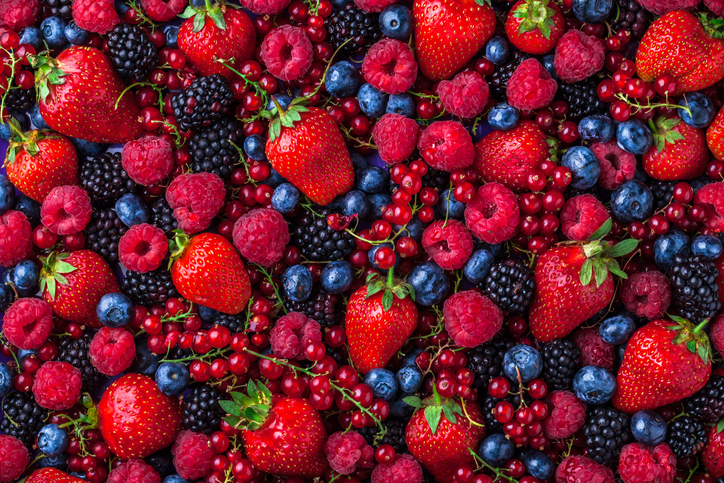By Isabelle Huot
What you eat can make it easier to keep calm as you carry on.
- Complex carbohydrates, found mainly in bread, pasta, quinoa, and potatoes, are a source of energy. The more energy the body has, the more serotonin—the well-being neurotransmitter, also known as the “happy hormone”—it sectretes. This has a direct effect on anxiety levels. By choosing whole grains, you get more fibre and feed the good micro–organisms in your gut—maintaining a diverse intestinal flora is increasingly recognized as an anti-stress strategy.
- Proteins in meat, poultry, and fish stimulate the production of dopamine, a neurotransmitter associated with pleasure. As a bonus, sources of protein can boost levels of tryptophan, the precursor of serotonin.
- Antioxidants reduce the negative effects of oxidative stress, which can lead to the development of various diseases including diabetes and cancer. The top choices here include fruits, especially berries, and vegetables (the more colourful they are, the more antioxidants they contain), legumes, and spices such as turmeric. Aim for five servings of vegetables and three servings fruits a day and serving of legumes twice a week.
- Essential fats (omega-3s and omega-6s) are essential to the proper functioning of the nervous system. The omega-3s in fish can help to regulate mood during times of stress. One study showed that a high level of omega-3 in the blood (as a result of the consumption of a lot of fish or marine-derived supplements) promoted better management of the physical and emotional symptoms of stress. These fats also reduce feelings of distress and improve one’s sense of overall well-being. Fatty fish such as tuna, salmon, trout, mackerel, and sardines are especially rich in good omega-3 fats. Good sources of omega-6 are eggs, avocados, walnuts, and almonds.
- Magnesium has a calming effect on the body. It especially helps with muscle relaxation and is essential to maintaining a regular heart rate. Because stress leads to a loss of magnesium, it’s important to include food sources rich in this mineral: legumes, dark chocolate, nuts and seeds, and bran cereals.
More Stress Beaters
Thirty minutes of physical activity is enough to get the body to secrete endorphins, the feel-good hormones, and studies have shown that contact with nature reduces depression and negative emotions. Getting enough sleep is important, too—seven to nine hours a night can help you better cope with daily stress, but too little sleep increases levels of cortisol, a.k.a. “the stress hormone.”
The Stress Hormone
The steroid hormone cortisol is involved in the metabolism of sugars as well as in regulating blood pressure and the body’s stress response. Chronically high stress levels have various effects on the body, including an increase in “bad” cholesterol (LDL) and chronic inflammation. Studies have shown that cortisol also stimulates an appetite for foods that are high in carbohydrates (sugars) and promotes the storing of fat around the abdomen. Sleep, exercise, and even practising deep breathing can help keep cortisol in check.
Isabelle Huot holds a Ph.D. in nutrition.






